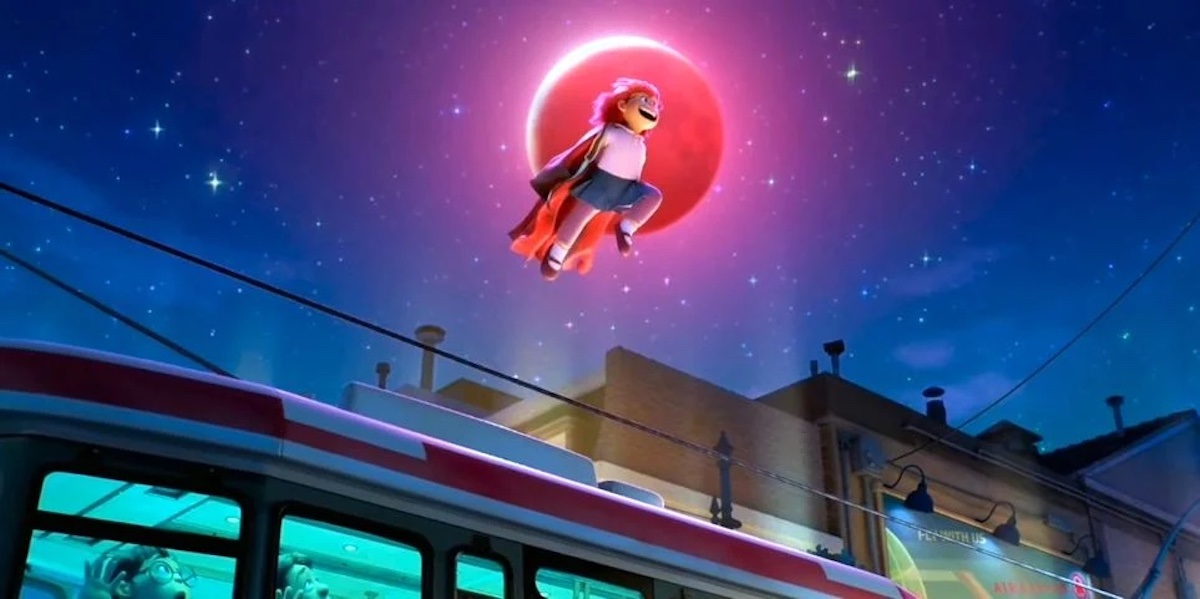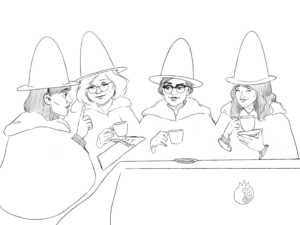When I watched Turning Red for the first time, I had an idea about what to expect. Disney/Pixar have rooted themselves as the prime creators of emotionally heavy, touching, and inventive movies for the last twenty years or so. I knew it would be an engaging watch, but I never could’ve expected to face an emotional mirror in the form of a red panda.
Specifically, I could see myself in the main character of Turning Red, thirteen-year-old Mei. Her journey with puberty and the big feelings that come with it took me back to my own experiences growing up. In Mei’s case, however, her big feelings cause a big change: she turns into a red panda whenever she feels anything too strongly. It’s a trait that belongs to every woman from Mei’s maternal side of the family thanks to an ancient bond with red pandas. An inheritance Mei wants no part of.
Although I didn’t have her transformative powers, like Mei and her fantastic group of friends, I, too, was a high-achieving cringy teen girl going into middle school and had fellow quirky teen girls to commiserate with. We may not have been understood by the rest of our classmates, but we understood each other, and for that, I’ll always be grateful. There are slight variations to note (we fawned over emo bands and not 4-Town-esque boy bands), but we definitely doodled our crushes through awkward fanart, lost our collective cool at every concert we went to and wanted to be adults way before we understood what that really meant.
Mei tells us right from the start that since she’s finally a teenager, she’s officially an adult (at least in the eyes of Toronto’s transit system), and doesn’t have time to waste when it comes to her goals, helping her family at their temple, and hanging with her friends. However, with growing up comes the aforementioned red panda transformation Mei goes through whenever she feels really strong emotions — as if puberty wasn’t tough enough!
Over the course of the movie, we see Mei struggle with this genetic new trait, and at first, she plans on doing what her mom and the other women in her family have done — get rid of the panda all together through a ritual ceremony. However, leading up to the ritual, Mei finds her strange new powers not only useful for raising money to see 4-Town, but also for her confidence. Turns out this new skill can be a kind of superpower, too. In this way, she learns that the panda isn’t all that bad, and in fact has the capacity to bring good things into her life!
I may not have the ability to turn into a red panda when I get overwhelmed, but embracing all the quirky/cringy things I loved in middle school turned out to be a superpower of its own. In high school, I tried to put those things away and be more “”serious,”” but after some years, I can understand that embracing cringe can be a powerful gift. Indeed, leaning into the nerdier things I love as an adult has brought me cherished friendships, hobbies I can pour my creativity into, and a little slice of happiness through embracing my full self. Watching Mei learn to embrace her red panda self was a nice reminder that growing up is all about self-acceptance and there’s power in that.
Featured image via Disney’s Turning Red (2022).




